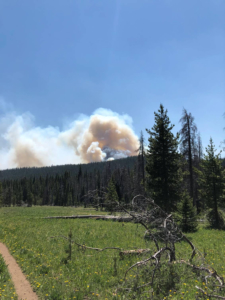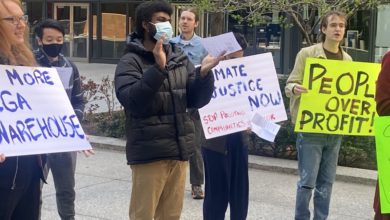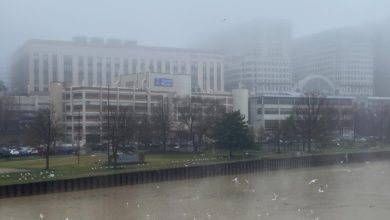
In April, Colorado Governor John Hickenlooper briefed the public on the potential fire danger for the coming summer. Colorado’s Division of Fire Prevention and Control predicted an extremely serious fire season, similar to the extraordinarily destructive 2012 Colorado wildfires. Since those fires, millions of dollars have been put into new firefighting technologies. Hickenlooper expressed confidence in the preparedness of institutions like the U.S. Forest Service, but he also implored the public to “use common sense” in avoiding starting wildland fires. Parroting Smokey Bear, Governor Hickenlooper echoed over a hundred years of capitalist fire management in the American West with the mantra: “Only you can prevent wildfires.”
The official predictions have come to fruition over the summer as fires continue to burn in all Western states. Colorado has had over 1,500 fires with nearly half a million acres burned or burning and around 450 homes destroyed. Many of these fires were “human-caused,” and news reports often mime Smokey Bear’s famous quotation when they focus heavily upon “causes” like careless cigarette smokers or campers.
Sometimes, reporters correctly identify climate change as the cause of the severe drought conditions and heat waves, but liberal solutions to climate change are never systemic and often focus solely upon individuals making “climate conscious” choices. These personal responsibility solutions can never confront the reasons why wildfires every summer are increasingly intense and threatening to human life and property. To explain that, we would have to look to decades of profit-driven land development and short-sighted fire suppression practices that have made millions for banks and real estate developers while contributing to the unprecedented fires we see today. What is really to blame is not the careless individual who starts a fire, but climate change and the irresponsible land development techniques used by capitalists that have turned the Western U.S. into a powder keg.
In order to combust, a fire needs three things: heat, oxygen, and fuel. Fire scientists classify fires based on fuels; they do this because understanding fuel is essential to stopping (or “suppressing”) an out-of-control fire. Wildfires, or wildland fires, use naturally occurring “combustible material” fuels (as opposed to gasses or liquids) like trees, brush, or grass. However, human-caused climate change has affected and changed these “natural” fuels, causing them to become drier and more receptive to igniting and carrying fire. In addition, centuries of capitalist land development has demanded that natural wildfires be suppressed, and this has increased the density and amount of fuel in many areas.
Fires occur seasonally on land all over the world, and often, inhabitants use this seasonal burning to their benefit to replenish the land with nutrients, to allow new growth, and to bring in different species of plants and animals. In the Americas, Native peoples used fire to develop the land for thousands of years before the European invasion. The type of development championed by settlers differed greatly from the small-scale farming of Native Americans. As early capitalists, the settlers wanted to produce large profits by quickly growing cash crops and they needed to suppress fires to get the most out of the land.
Wildfire management under capitalism focuses on constantly holding back fire so that land can be developed without pause and capitalists can continue to rake in profits. This is especially evident in the U.S. West, where wildfire has historically threatened and inhibited capitalist land development. For many years, settlers in the West could only dream of suppressing fire, but with the population increasing rapidly during the Westward Expansion, this dream became a reality. Free-burning wildland fire was virtually eliminated during the 18th and 19th centuries through suppression efforts by the U.S. government and private land developers.
Governor Hickenlooper’s robotic echoing of Smokey Bear’s 100-year-old mantra in the face of what could be the worst fire season in Colorado captures the absurd logic of capitalist fire suppression. Capitalists and the capitalist state that serves them have continued to use the same methods, even the same catchphrases, for over a hundred years. Meanwhile fires only grow more constant and severe. The USFS received $4.9 billion in 2017, and spent more than half of this on suppressing and fighting what it described as “uncharacteristically severe wildfires,” yet this billion-dollar band-aid did nothing to deter the 2018 fire season. This is emblematic of the way capitalism meets crises: despite every red flag and blaring alarm warning of severe catastrophes, capitalists stay the course that preserves their profit without regard for the dire consequences of their actions.
While few socialist societies have confronted massive wildfires like those in the Western U.S., we can look to a country like Cuba to see how it plans for and responds to natural disasters in general. Before Hurricane Irma, the Cuban government effectively evacuated people and prepared infrastructure, and in the aftermath, the people effectively rebuilt while the state sent doctors and aid to other affected lands in the Caribbean. Meanwhile, unprepared oil refineries in Houston were severely damaged during Hurricane Harvey and leached a chemical cocktail of pollutants into local water and air. To this day parts of Puerto Rico are still without power.
While capitalist states align themselves first with the interests of private capitalists and ignore disasters until they cut into profits, socialist societies prioritize the interests of the masses of working people before private profits. They prepare for disasters while simultaneously working to develop industry responsibly for the benefit of all people. Climate change and years of irresponsible capitalist land development have fueled more dangerous and destructive natural disasters, but it is not the disasters themselves that are unnatural. What is unnatural, and what needs to be replaced, is the system of capitalism.






